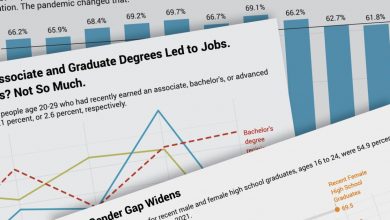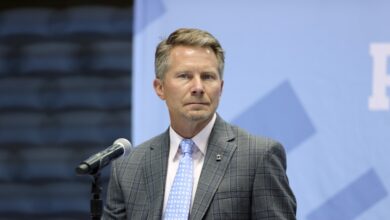U. of Missouri Commits $500 Million to Faculty and Staff Raises

At a time when many colleges are having to penny-pinch amid pandemic-era challenges, the University of Missouri system’s president is committing an eye-popping $500 million toward performance-based salary increases for faculty and staff members over the next five years at the Columbia flagship.
Before the pandemic, Mizzou was grappling with significant enrollment declines and tens of millions of dollars in budget shortfalls, but that tide has turned in the last couple of years. Proving that point was Mun Y. Choi’s commitment to “annual performance increases as well as retention of high-performing faculty and staff,” which came during his State of the University address on Tuesday. “We need a long-term, sustained plan” for awarding raises, Choi, who is also chancellor of the flagship campus, said during the speech.
Choi and other Mizzou officials are pitching the raises as an effort to reward faculty members they consider to be productive. University leaders have recently clashed with faculty advocates over a policy that allows for tenured professors’ pay to be cut by up to 25 percent for productivity- or workload-related reasons.
All faculty and staff members on the Columbia campus will be eligible for salary increases, though because the raises are based on merit, not every campus employee will receive one. “We don’t hand out across-the-board raises at Mizzou,” Christian Basi, a university spokesman, told The Chronicle.
Not every college or department at Mizzou will receive the same pool of money to use on raises, Basi said. Instead, the funding breakdown will be based on “merit, market, and retention factors.”
The pay increases are part of a $1.5-billion, 10-year campaign, called MizzouForward, that began in November and that Choi in his address described as “an investment in our people.” Some $550 million is being earmarked to recruit new tenured and tenure-track professors and cover their startup costs. A “bare minimum” of 150 new faculty members will join the university by 2026, Choi told the Columbia Missourian, with 60 expected to arrive this year.
The $500 million for salary increases will not come from any one distinct source. Some of the funding will be drawn from existing sources, a news release said, “while other sources of revenue are expected to be realized as the strategy moves forward.” Several of those cash sources are set aside for specific purposes, including a health-care initiative and research and educational opportunities for students.
A $3-million endowment for staff retention in health and life sciences and health care, outlined as a congressional earmark in the $1.5-trillion federal spending bill that passed Congress last week, Basi said, is separate from the MizzouForward spending.
Leaders of each division will determine which faculty and staff members receive raises, which will be incorporated into their annual base pay, Basi said. And while two of the MizzouForward plan’s three goals cite STEM-related projects — to expand the university’s NextGen Precision Health initiative and to “harness the frontiers of science and engineering for a sustainable world” — some faculty and staff members in the humanities will also receive raises, Basi said.
News of the raises came as Mizzou faculty members continue to fight the pay-cut policy for tenured professors, which the university adopted in the spring of 2020. That effort has faced staunch opposition from Mizzou’s Faculty Council, 88 percent of whose members voted last month to ask Choi to rescind it. Fewer than 10 faculty members have seen salary cuts because of that policy so far, Basi said.
The pay cuts and the commitment to merit-based raises, Basi said, promote “exactly the same thing”: good performance.
Kathleen M. Trauth, chair of the Faculty Council and an associate professor of civil and environmental engineering, said the pledge was part of a larger impetus to support current faculty members. In recent years, she said, faculty members have gotten small raises or no raises, and Choi’s promise was “just a recognition that, ‘Yes, we need to compensate people for what they’re doing.’”
Trauth said that she wasn’t privy to specifics about how the raises would be distributed, and that faculty and staff members would need to “follow up” in the future to be sure the process is running smoothly. But she’s bullish on the new spending and its implications for faculty morale and retention.
“It is a lot of money,” she said, “but when you think about extending it over someone’s career, then you’re like, ‘OK, $500 million is about the right order of magnitude for what it would take to increase salaries and keep them going for someone’s career.’”
Source link






